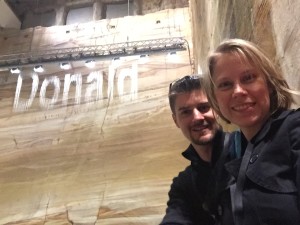“Be anxious for nothing, but in everything, by prayer and petition, with thanksgiving, present your requests to God. And the peace of God, which surpasses all understanding, will guard your hearts and your minds in Christ Jesus.” Philippines 4:6-7
What do you envision when you think of a peaceful life? A life free from trouble and drama, or perhaps full of luxury and ease?
When we normally think of having a peaceful life, we assume this means a life where hardships for the most part are removed and thus tranquillity results. We pray for the removal of impediments so peace can prevail.
However, God’s peace is not necessarily about removing tribulations as it is about fortifying our hearts and minds in spite of them. God’s peace stands in the midst of hardship, not in the absence of them.
God’s peace is depicted as a guard to our hearts and minds. It is active during troubled times. It is not the default passive peace that befalls us when on a relaxing holiday for several weeks. His peace transcends circumstance.
This type of peace perplexes the natural world and the natural man. That is why it is called the peace that surpasses all understanding.
How do you obtain God’s supernatural peace? It is a gift to believers “in Christ Jesus” who petition their requests to God.
Jesus states in John 14:27 “Peace I leave with you; my peace I give you. I do not give to you as the world gives. Do not let your hearts be troubled and do not be afraid.”
In Mark 4:39, Jesus calms a storm. His disciples wake him while aboard a ship fearing for their lives. Jesus commands the storm ‘Peace! Be still!’ and the storm ceased. Jesus later scolds his disciples by asking “Why are you still afraid? Do you still have no faith?”
Note how Jesus is recorded as sleeping during a storm. His disciples full of fear and doubt wake him asking in verse 38, “Teacher, don’t you care that we are perishing?” The lack of faith in Christ Jesus is the real hindrance to our peace. God’s peace is an inner calmness despite the outward storm. It is a gift to those who have faith in the promises of scripture and a source of strength when we need it the most.
The next time we find ourselves wrought with anxiety, may we be graced with this peace that can calm both a stormy sea and any tempests that howls in our hearts.





